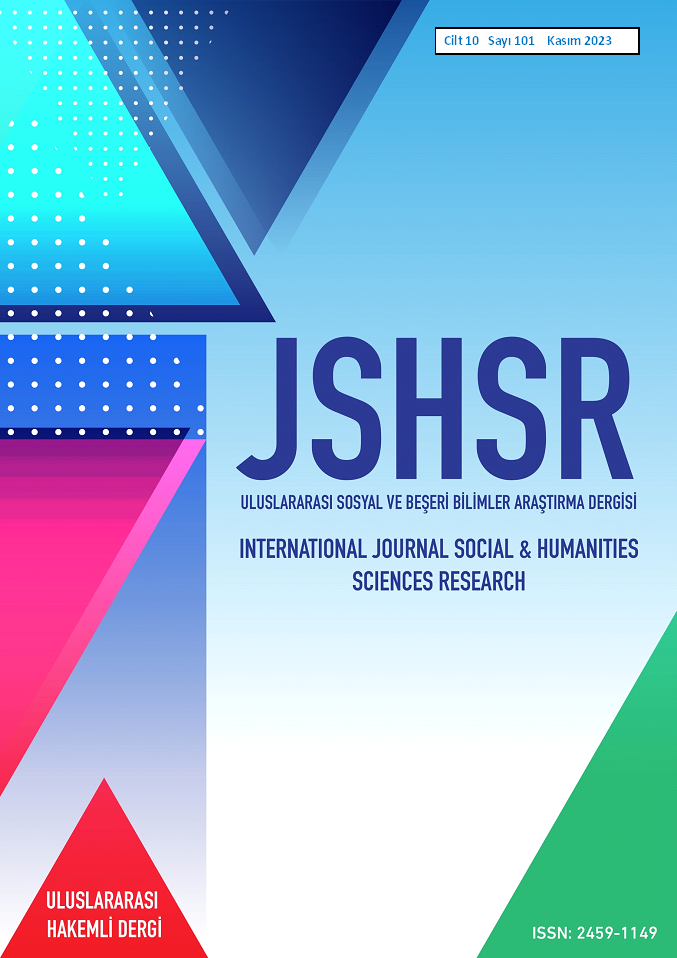An Analysis of the Choices for Subtitlers and Dubbers in the Translation of Address Forms from English into Turkish
DOI:
https://doi.org/10.5281/zenodo.10256916Keywords:
The Crown, Address terms, Address pronouns, Translator choices, Dubbing, SubtitlingAbstract
Address terms and address pronouns (T and V forms) play a significant role in the organisation of societies, and social and cultural norms. The AVT translator while translating the pronoun “‘you” from English into Turkish has to make a choice between the two alternatives “sen (T)” and “siz (V)” which are available in the target language. Naturalness, plausibility and spontaneity maintained through markers based on cultural, and sociolinguistic facts in the fictional verbality of the source text need to be achieved in the target language by means of translator choices. In this study, the choices of the translator in the subtitle and dubbing translations based on possible sociolinguistic explanations are dealt with through examples taken from the historical drama, “The Crown”. In light of contemporary audio-visual theories a comparative and descriptive analysis is carried out taking into consideration how the characters address each other throughout the dubbed and subtitled versions of the series, “The Crown”, the Netflix serial, a historical drama produced by Left Bank Pictures and Sony Pictures. The initial part of the study deals with the address terms and second person address pronouns used in English and Turkish and their translation choices. In the analysis part, the historical drama, “The Crown” and the corpus of data collected and collated from randomly chosen seasons and parts focusing on how address terms and pronouns are translated in the dubbing and subtitling versions are introduced. The corpus of data entails how royal family members address each other in private and public settings, how they address royals and/or unroyals in social settings and which address terms royal family members use in official protocols. In the conclusion part, the importance of such analysis is discussed, with special emphasis on how this type of research serves as an example in the training of audiovisual translators and as material to be used during training in the AVT classroom.
References
Assis Rosa, A. (2000). The negotiation of literary dialogue in translation: Forms of address in Robinson Crusoe Translated into Portuguese. Target, 12(1), 31-62.
Bayraktaroğlu A. & Sifianou M. (2001). Linguistic politeness across boundaries: The case of Greek and Turkish. Amsterdam: John Benjamins Publishing.
Brown, R., Gilman, A. (1960). The pronouns of power and solidarity. In T. A. Sebeok (Ed.). Style in Language. Cambridge: M.I.T. Press.
Chaume, F. (2004). Film Studies and Translation Studies: Two Disciplines at Stakein Audiovisual Translation. Traduction audiovisuelle, 49(1),12-24.
Dinçkan, Y. (2019). A Linguistic Analysis of the Literary Translation of Address Forms from English into Turkish. Çeviribilim ve Uygulamaları Dergisi 27, 89-110
Eğit, Y. (1992). Günümüz Türkçesinde hitap biçimleri. In A. Konrat (Ed.). Proceedings of the 6th International Conference on Turkish Linguistics (pp. 27-38). Eskişehir: Anadolu University.
Ervin-Tripp, S. (1979). Sociolinguistics rules of address. In J. Pride and J. Holmes (Eds.). Sociolinguistics: Selected reading (pp. 225-240). England: Penguin Books.
Fasold, R. (1990). The sociolinguistics of language. Oxford: Blackwell Publishers.
Friedrich, P. (1971). Structural implications of Russian pronominal usage. In W. Bright (Ed.). Sociolinguistics: Proceedings of the UCLA Sociolinguistics Conference (pp. 270-300). The Hague Paris: Mouton and Co.
Gregory, M., & Carroll, S. (1978). Language Varieties and their Social Contexts. London, Routledge.
König, G. (1990). Türkçe’de sen/siz adıllarının ikinci tekil şahıs için kullanımına toplumbilimsel bir yaklaşım. In A. S. Özsoy and H. Sebüktekin (Eds.). IV. Dilbilim Sempozyumu Bildirileri (pp. 175-184). İstanbul: Boğaziçi Üniversitesi Yayınları.
Okyayuz, Ş. (2016). Altyazı Çevirisi. Siyasal Kitabevi.
Özcan, F. H. (2016). Choice of address terms in conversational settings. International Journal of Human Sciences, 13(1), 982-1002.
Schӓffner, C. & Adab B. (2001). The idea of the hybrid text in translation: Contact as conflict. Across Languages and Cultures, 2, 167-180.
The Crown (2016). Yönetmen: Peter Morgan&Stephen Daldry. Yapım Şirketi: Left Bank Pictures & Sony Pictures Television. https://www.netflix.com/TheCrown
Upton, C. & Widdowson, J.D.A. (2006). An Atlas of English dialects: Region and dialect. Oxon: Routledge.
Wardhaugh, R. (1990). An introduction to sociolinguistics. Oxford: Basil Blackwell Ltd.
Warren, J. (2006). Address Pronouns in French: Variation within and Outside the Workplace. Australian Review of Applied Linguistics, 29(2), 16.1-16.17.
Downloads
Published
How to Cite
Issue
Section
License
Copyright (c) 2023 INTERNATIONAL JOURNAL OF SOCIAL HUMANITIES SCIENCES RESEARCH

This work is licensed under a Creative Commons Attribution 4.0 International License.


